A new review paper by researchers at Flinders University on the effectiveness of weighted blankets was recently published in The American Journal of Occupational Therapy. It stated that weighted blankets are now scientifically proven to help improve your mood and mental health, as well as help those experiencing insomnia to fall asleep and stay asleep.
Weighted blankets usually have micro glass beads sewn into small pockets to create a weighty feel, usually coming in 10lbs - 25lbs weight options. This provides pressure therapy, which is akin to the sensation of a hug. In turn, this tells our nervous system to relax, helping ease nighttime anxiety and stress, while preparing our body for sleep.
We've always championed weighted blankets for their ability to improve sleep quality, so we're going to look further into this study and find out exactly how they can help those experiencing insomnia while also offering some top tips and home remedies to ease insomnia symptoms.
What is insomnia?
According to a 2024 survey by the American Academy of Sleep Medicine, around 12% of US adults suffer from chronic insomnia. It can be defined in simple terms as the difficulty in falling and staying asleep, with constant wakings, despite having enough time and the right environment to do so.
Symptoms of insomnia typically include extreme fatigue during the day, irritability, anxiety, having trouble focusing on daily tasks and overall low mood and energy levels.
If this happens thrice or more in a week with the condition persisting up to a month, it can be categorized as acute insomnia, and as chronic insomnia if it becomes 3 months or beyond.

How can weighted blankets help insomnia?
The study reviewed 18 existing research papers investigating the use of weighted blankets overnight, following PRISMA guidelines. Materials were taken from sources like Medline, Cochrane Library, PsycInfo, Scopus and Google and were analyzed using standardized tools.
As per Dr Suzanne Dawson who led the team, weighted blankets were found to be a “tangible non-drug intervention” in promoting quality sleep. “Adults who used the blankets reported better sleep, reduced use of sleep medications, and even improvements in mood and pain management,” said Dr Dawson.
By relaxing the nervous system and easing issues like nighttime anxiety and stress, the mind and body can prepare properly for sleep.
However, it's important to note that the results were varied when it came to children and adolescents, especially those with conditions like ADHD or Autism Spectrum Disorder, and any evidence of improvement in their sleep was lacking.
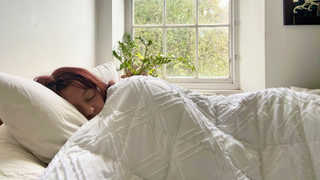
How to sleep with insomnia
It is always important to reach out to your doctor or a health expert if your insomnia symptoms persist and are affecting your daily life. But here are a few home remedies that can help you fall asleep and stay asleep.
Keep a consistent sleep schedule
Sticking to a regular schedule is crucial to regulate and maintain a healthy circadian rhythm — the body’s biological clock which helps you with your daily physical and mental functions. Try to wake up and go to sleep at roughly the same time everyday (even weekends).
Disruptions to your sleep routine will confuse your internal clock resulting in frequent wakings, which when left overlooked, can develop into insomnia.
However, there are ways to reset your sleep schedule, even if you're dealing with unexpected roadblocks like a work deadline or a sudden travel plan. Waking up slightly earlier each day will help your body adjust to a new sleeping schedule.
Maintain good sleep hygiene
This is essential for ensuring you have a good night’s rest. Sleep hygiene is a comprehensive term used to describe good sleeping habits you should practice. This can includes steps like maintaining a consistent bedtime routine, keeping your bedroom clean and tidy, and avoiding light pollution by using blackout curtains.
You can also have poor sleep hygiene habits that negatively affect your ability to sleep. This can include drinking caffeine after midday, eating sugary snacks before bed, and using your bedroom for work.

Perfect your sleeping environment
Keeping your sleep environment neat, clutter-free and calm will help your mind switch off at bedtime, making it easier to fall asleep.
You can do this by cutting down external distractions by investing in blackout curtains or a white noise machine and setting your room to the right temperature. If you’re not sensitive to smells, calming fragrances work for some to fall asleep faster.
It's also important to consider what you're sleeping on. Tossing and turning all night can contribute to insomnia, so choosing the best mattress for your sleep needs will help you get comfortable.
Alongside this, the best pillow for your sleeping position will ensure your spine and neck are aligned to stop aches and pains and pressure build up that may prevent you from falling asleep.
Get natural sunlight
Do you know that exposure to natural light will help regulate your circadian rhythm and energy levels? This means you’ll feel naturally sleepier in the evenings and more energized in the mornings.
It is natural for our body to produce cortisol — the stress hormone in the mornings to wake up alert and focused. Sunlight exposure helps our body release a brain chemical called serotonin which is associated with optimal physical healing, improved mood and mental wellbeing.
Moreover, this can also train your body to sense light and darkness and in turn promote the correct production of melatonin — the sleepy hormone — when it’s dark outside.
Use a weighted blanket
While we used to suggest a weighted blanket to help calm nighttime anxiety, now, with this new study, we can suggest it for insomnia, too.
Weighted blankets are often made from micro glass beads sewn into small pockets to distribute the weight evenly. This pressure therapy can help calm our nervous systems, aiding better sleep.
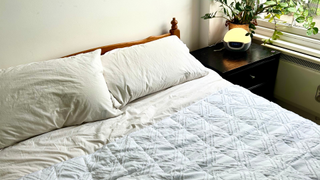
How to choose the right weighted blanket
Considering the many benefits a weighted blanket promises, it would be wise to invest in one before winter hits us this year, in case you haven’t already. As with any other bedding accessory, it is important that you find the right one for you.
Many brands suggest choosing a weight that’s around 10% of your body weight, but it’s also down to personal preferences. Less than this, and you may not get the pressure therapy benefits and experts say more than this can be uncomfortable, even unsafe.
Most blankets come in 5lb, 10lbs, 15lbs, and 20lbs options. If you want to find the perfect one for you, whether it's a cooling bamboo blanket or an extra snug fleece throw, our guide to this year's best weighted blankets will make your search easier.
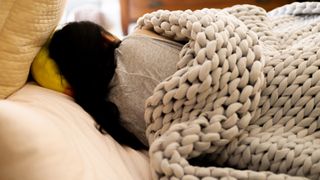




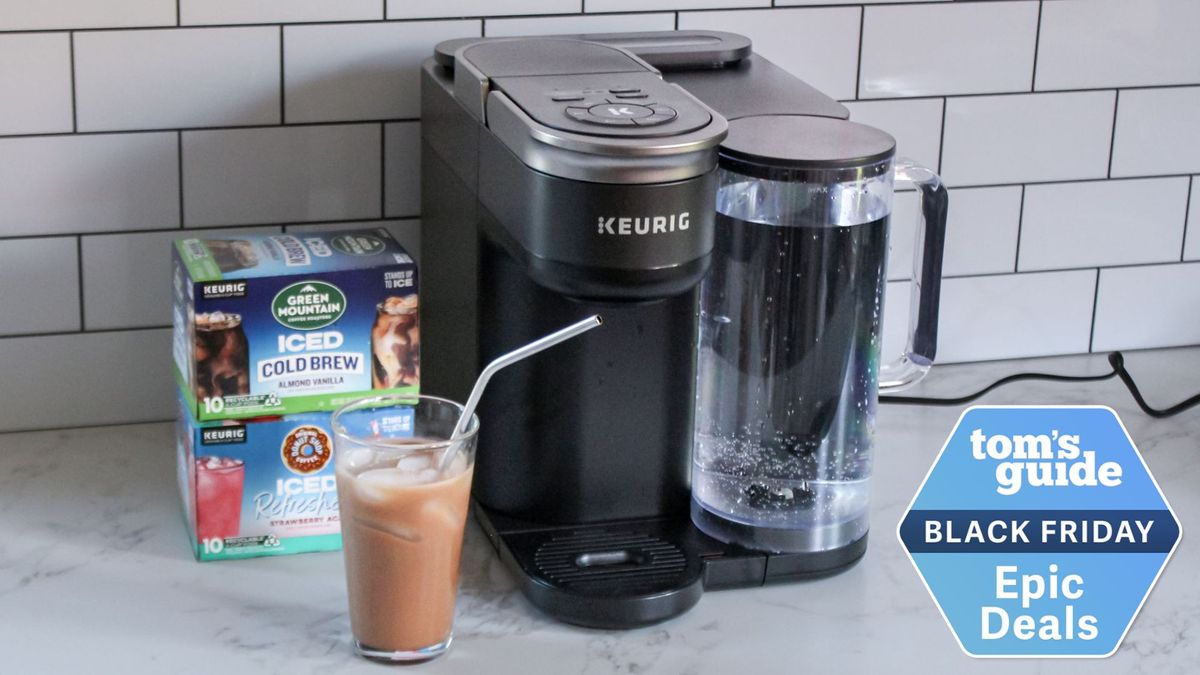


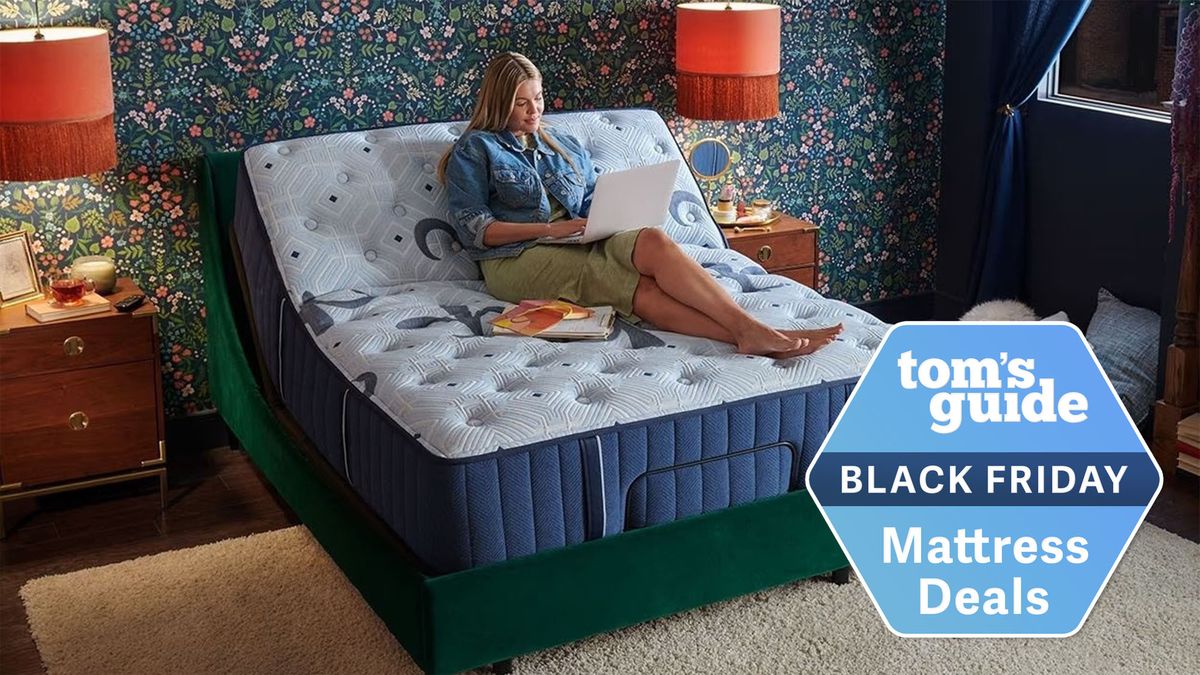












 English (US) ·
English (US) ·